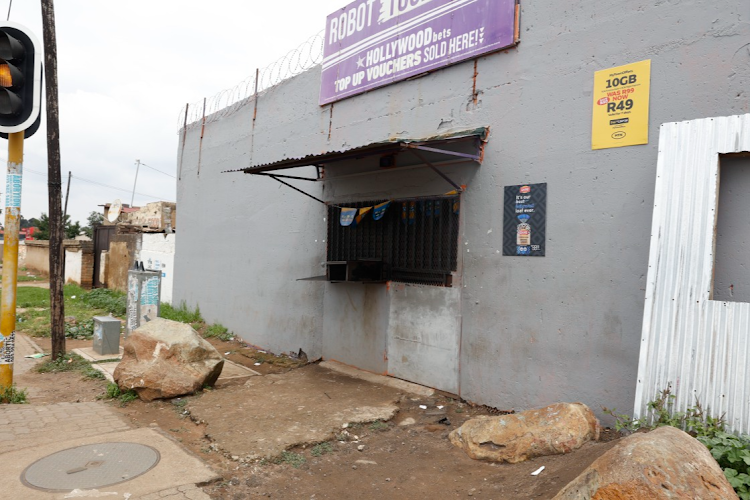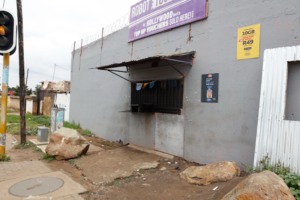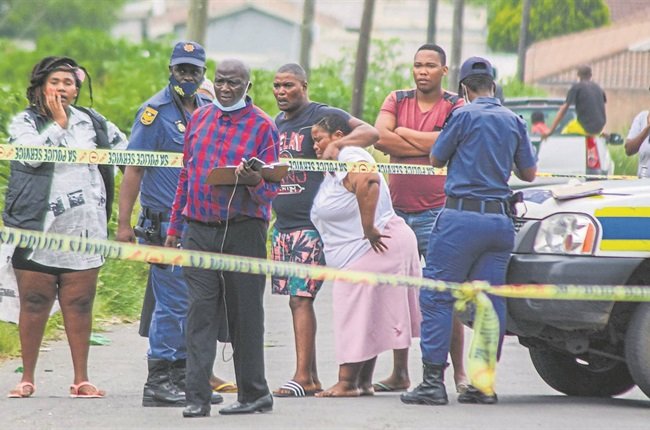
An eight-year-old boy from Mapetla, Soweto, is fighting for his life after allegedly consuming poisoned snacks from a local spaza shop. This incident has once again raised concerns about the safety of unregulated spaza shops, many of which are still operating without proper registration despite a government deadline passing over a month ago.
The tragedy unfolded when the boy, after eating chips bought from the shop, began experiencing severe symptoms. His aunt, Virginia Morapedi, described the horrifying scene as the child vomited and foamed at the mouth, collapsing in pain. He complained of his stomach turning grey and was unable to stand. The family immediately rushed him to Tshiawelo Clinic, where medical staff suspected poisoning, possibly from rat poison.
Morapedi recalled that one of the nurses mentioned that the symptoms were similar to those caused by organophosphates, a chemical commonly found in rat poison. The family then made arrangements for the boy’s urgent transfer to Chris Hani Baragwanath Academic Hospital. Doctors there confirmed that the child’s condition was critical, with his organs shutting down due to the poison’s spread throughout his body. The situation echoed a similar tragedy in Naledi, where six children tragically died last year from suspected food poisoning after consuming snacks from another unregistered spaza shop.
The boy’s family has been informed by doctors that his brain is no longer functioning, and he remains on life support as his organs fail. The heartbreaking news has left the family devastated, as they continue to wait for updates on his condition. Morapedi expressed her grief, stating that the medical team is doing everything they can to help the boy survive.
In response to the incident, the City of Johannesburg has confirmed that it is aware of the case and that investigations are ongoing. Virgil James, a spokesperson for the City, emphasized the importance of compliance and safety inspections for spaza shops, noting that the shop in question had been closed. However, he also mentioned that no spaza shops have been approved for registration since the deadline, and no enforcement actions had been taken for non-compliance yet.
As news of the incident spread, the local community in Mapetla reacted with anger. Residents, horrified by the situation, forced the owner of the spaza shop, a Pakistani national, to shut it down. Despite this, the shop owner returned the next day with members of a Pakistani business forum, who argued that the community had no right to close the shop. A subsequent community meeting led to a decision to close the shop once again, though the owner was allowed to remove his stock.
Several residents claimed that the spaza shop’s conditions were unhygienic. One individual reported seeing sweets and cigarettes stored in the same container, while snacks were placed directly on top of powder, raising further concerns about the store’s sanitary practices.
Meanwhile, the South African government continues to tackle the issue of unregistered spaza shops. Small Business Development Minister Stella Ndabeni recently visited Soweto to launch a R500 million support fund aimed at helping township businesses. The initiative is designed to assist with bulk buying, store upgrades, and business compliance training, which could play a critical role in preventing similar incidents in the future.
The tragic case of the young boy in Soweto highlights the need for greater regulation and inspection of spaza shops to ensure the safety of consumers. The community’s response reflects growing frustration over the lack of enforcement and the potential risks posed by unregistered businesses operating in the area.




